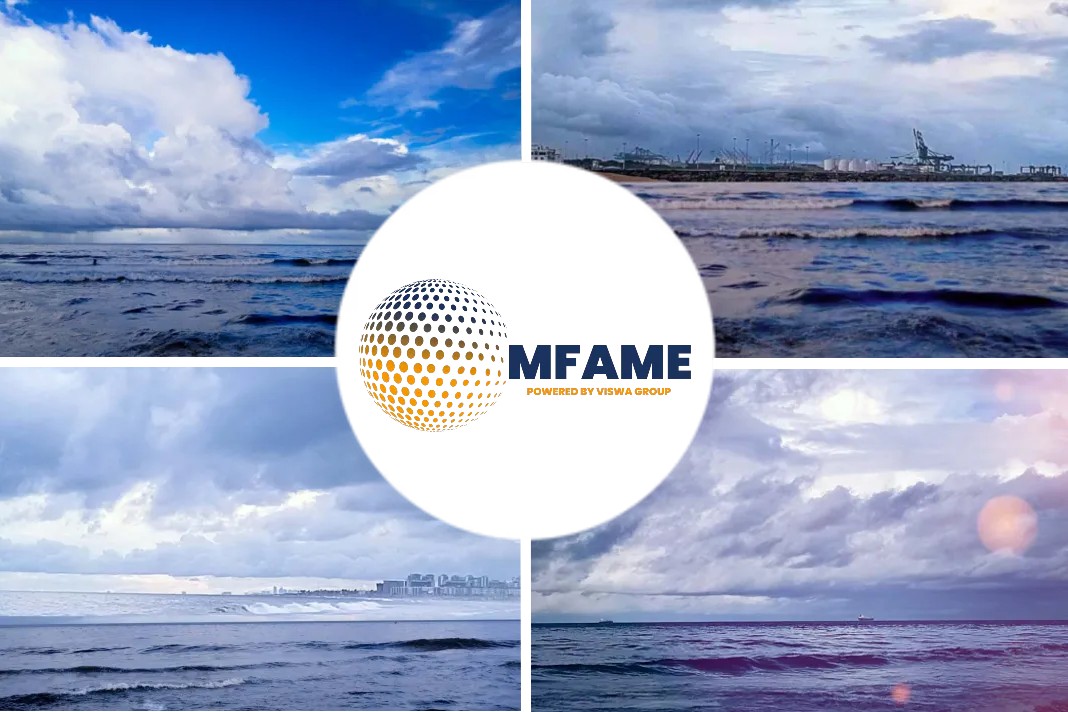After a ship-naming ceremony on Friday, the MS innogy is now ready to take passengers for a green tour on the beautiful Lake Baldeneysee. The MS innogy, the first vessel in Germany to be powered by methanol fuel cells, is a project by innogy, a leading distributor of green energy in Germany and the City of Essen. The methanol fuel cell system powering the vessel is developed and manufactured by the Danish fuel cell manufacture SerEnergy.
It was a green ambitious to show the tremendous potential of methanol as the fuel of the future, that started the cooperation between innogy and SerEnergy. About a year ago, the companies started to develop a plan to turn a diesel-powered vessel into an electric vessel powered by environmentally friendly methanol fuel cells. On Friday, after working five months on carrying out the plan, the MS innogy was given its name under a ship-naming ceremony in Essen, Germany, after which the vessel went out for the first official tour on the waters of Lake Baldeneysee.
“We are very proud to see the vessel touring the lake in Essen, it is an important milestone in showing the potential of methanol as the green fuel of the future. For us, it has been a very interesting project to be part of, and since the project is a first of its kind we have had to think out of the box to create an ideal energy system matching the energy demands of the vessel”, says Mads Friis Jensen, Chief Commercial Officer at SerEnergy.
A modular solution
The SerEnergy methanol fuel cell system is a modular solution making it easy to adjust according to the individual energy requirements of the customer. This is a unique feature within the fuel cell industry where other systems would require more development work and adjustments to each project. This also makes it possible for the customers to increase their system by expanding the rack with one module or more. The MS innogy fuel cell system is a 35 kW system consisting of seven 5 kW modules integrated in one rack. The energy system is a hybrid constellation consisting of a fuel cell system and a battery pack, where the fuel cells work as a range extender allowing the vessel to sail for an entire day without fuelling. Using waste heat from the fuel cell to drive the methanol reformation process leads to a high electrical efficiency between 40-50%.
Not only has the methanol fuel cell system zero harmful emissions and is CO2-neutral, it is also low on noise and vibrations, allowing the passengers to enjoy the tour without the characteristic engine noise and vibrations you normally experience on a vessel.
“In the field of methanol fuel cell technology innogy already gained experience with the leading supplier ‘SerEnergy’ before the project started. We have chosen SerEnergy as a strong partner in our greenfuel project because they convinced us with their innovative and successful reference projects”, says Jens Kanacher, Head of Energy Systems, Market and Storage and Project Manager of “greenfuel”.
The system for MS innogy is based on knowledge and experience that SerEnergy has gained being part of the Pa-X-ell test programme, where a methanol fuel cell system is placed on a cruise ship where it produces electricity to the ship’s internal power grid.
Environmentally friendly methanol
The MS innogy is a part of innogy’s “greenfuel” project where they demonstrate the entire value chain of environmentally friendly methanol, from a green production of methanol using CO2 from the surrounding air, green electricity and water, to the use of methanol as fuel in the excursion vessel and in cars. The scene of the methanol value chain demonstration project is the City of Essen – this year’s “Green Capital of Europe” and the demonstration project goes hand in hand with the ambitious transition the city is undergoing in reinventing itself as a “Green City”.
FACT BOX
Operator: Weisse Flotte Baldeney-GmbH
Shipyard: Lux Werft
Route: Lake Baldeneysee
Technology: HT PEM (High Temperature Polymer Electrolyte Membrane)
Fuel cell capacity: 35 kW
Fuel tank capacity: 330 L
Battery capacity: 100 kWh
Type: Propulsion (hybrid)
Emission: CO2 neutral & zero particles
Did you subscribe for our daily newsletter?
It’s Free! Click here to Subscribe!
Source: Serenergy




















